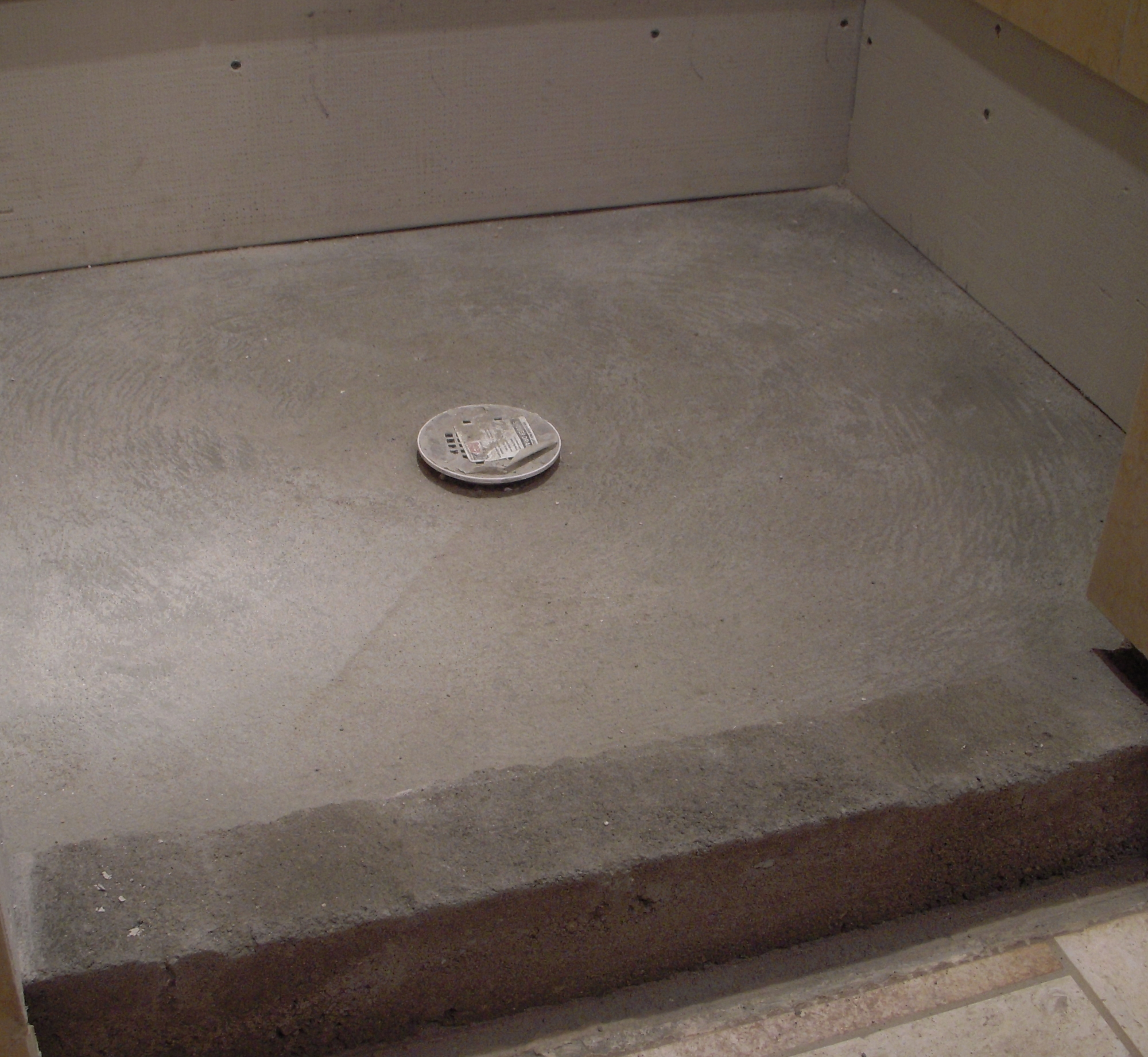Stepping into a shower after a long day, the feeling of cool tiles under your feet can be a welcome relief. But what about concrete? Can this robust and durable material be used for a shower floor?

Image: www.creativetileworks.net
The answer, surprisingly, is “yes,” but with some important caveats. While concrete is incredibly strong and resistant to water damage, its inherent porosity and the need for proper waterproofing make it a more complex choice for shower construction compared to traditional tiles. This article will delve into the details of using concrete for your shower floor, exploring its advantages, potential drawbacks, and the necessary steps to ensure a successful and long-lasting installation.
The Advantages of Concrete Shower Floors
1. Durability:
Concrete is renowned for its incredible strength and resistance to wear and tear. It can withstand heavy foot traffic and the constant exposure to water and moisture that a shower environment presents, ensuring a long lifespan for your shower floor.
2. Versatility:
Concrete can be molded into various shapes and sizes, allowing for unique and customized designs in your shower. You can have a gently sloped floor for easy drainage or create interesting patterns and textures for a more artistic and personalized touch.

Image: jenkinsernest.blogspot.com
3. Cost-Effectiveness:
Compared to some other flooring materials, concrete can be a more cost-effective option for shower floors, especially if you are comfortable with a DIY installation. It can also save on labor costs, as laying concrete is generally faster than laying tiles.
4. Thermal Properties:
Concrete possesses excellent thermal properties, effectively retaining heat and providing a warmer feeling underfoot compared to cold tile floors. This can be particularly pleasing during the colder months.
The Challenges of Using Concrete for Shower Floors
1. Porosity:
Concrete is a porous material, meaning it can absorb moisture. This makes it crucial to ensure proper waterproofing to prevent water damage and mold growth. Waterproofing involves applying a sealant or membrane to the concrete surface before it is exposed to water.
2. Slip Resistance:
A smooth concrete surface can be slippery when wet, making it a safety hazard in the shower. Incorporating slip-resistant aggregates or applying a textured coating during the finishing process can help mitigate this issue.
3. Aesthetic Limitations:
While concrete offers versatility in design, its natural, raw aesthetic might not be everyone’s preference. Achieving a polished, finished look requires careful preparation and finishing techniques, and even then, it may not always match the sleekness of ceramic tile.
4. Installation Challenges:
Laying a concrete shower floor is a more involved process than simply tiling. It requires proper concrete mixing, pouring, leveling, and finishing to ensure a smooth and durable surface. Specialized tools and knowledge may be necessary for the installation.
Key Considerations for a Concrete Shower Floor
1. Waterproofing:
Waterproofing is paramount for a concrete shower floor. Consider using a high-quality waterproof membrane or sealant, applying it diligently to prevent water penetration and potential damage.
2. Slope:
A gentle slope towards the drain is essential for effective water drainage and preventing pooling. Aim for a slope of at least 1/4 inch per foot.
3. Slip Resistance:
Choose a surface texture or add slip-resistant additives during the concrete mixing process to prevent potential slips and falls.
4. Finishing:
After pouring and drying, the concrete surface may require polishing, grinding, or applying a sealer for a desired finish. Consult with a professional for suitable finishing options.
5. Maintenance:
Keep your concrete shower floor clean and dry to prevent mold growth. Regularly clean the floor with a mild cleaner, and consider applying a sealant periodically to preserve its appearance and water resistance.
Can You Use Concrete For Shower Floor
Conclusion
Building a shower with a concrete floor can be a rewarding project, offering a unique aesthetic and durable surface. However, understanding the challenges and taking necessary precautions in waterproofing, slip resistance, and finishing are crucial for a successful and long-lasting installation. Before embarking on this project, research the process thoroughly, consider hiring a professional if needed, and weigh the benefits and drawbacks to ensure this choice aligns with your vision and budget. Your meticulously crafted concrete shower floor can then become a beautiful and functional centerpiece in your bathroom, providing years of enjoyment and comfort.





